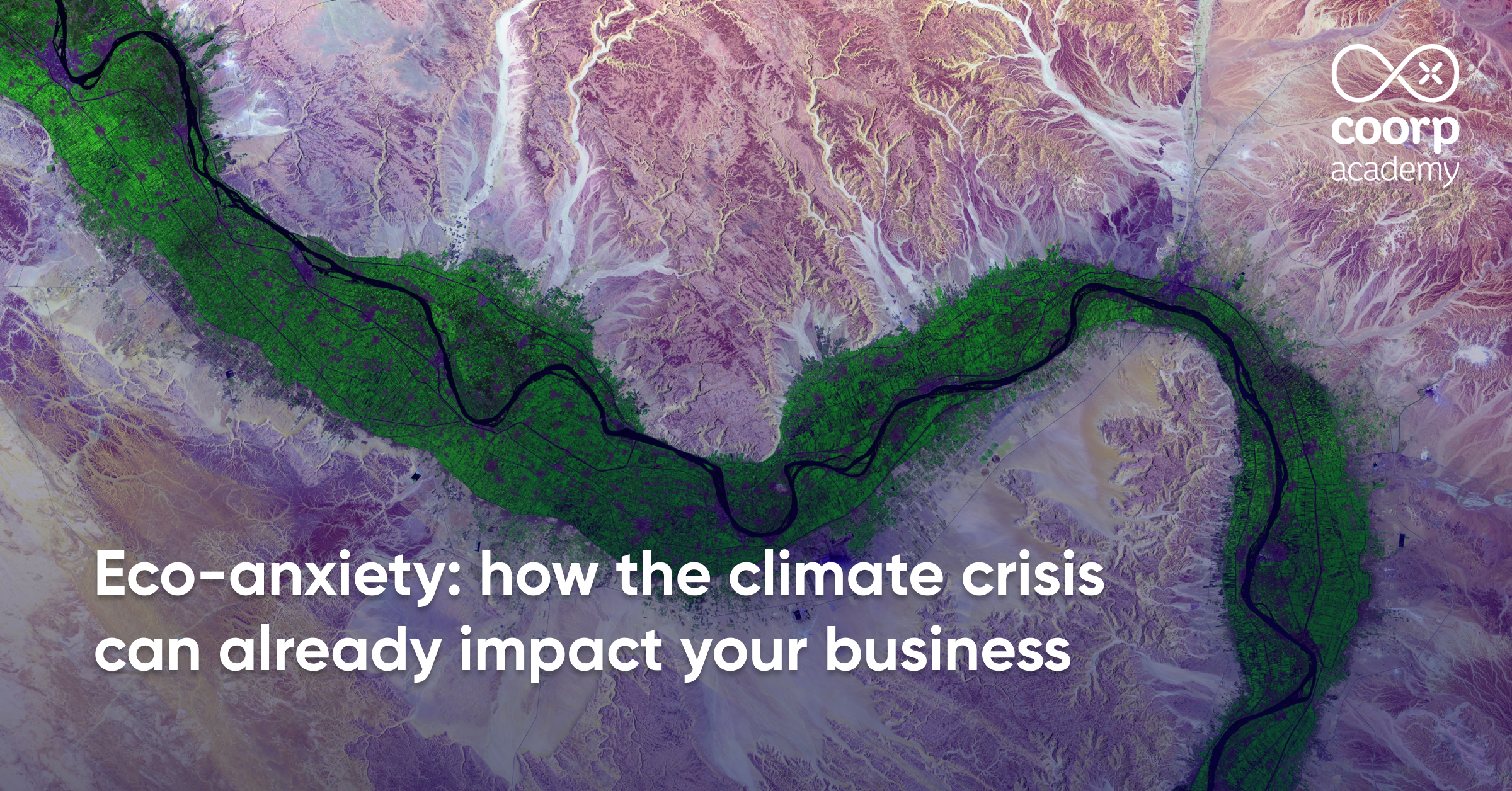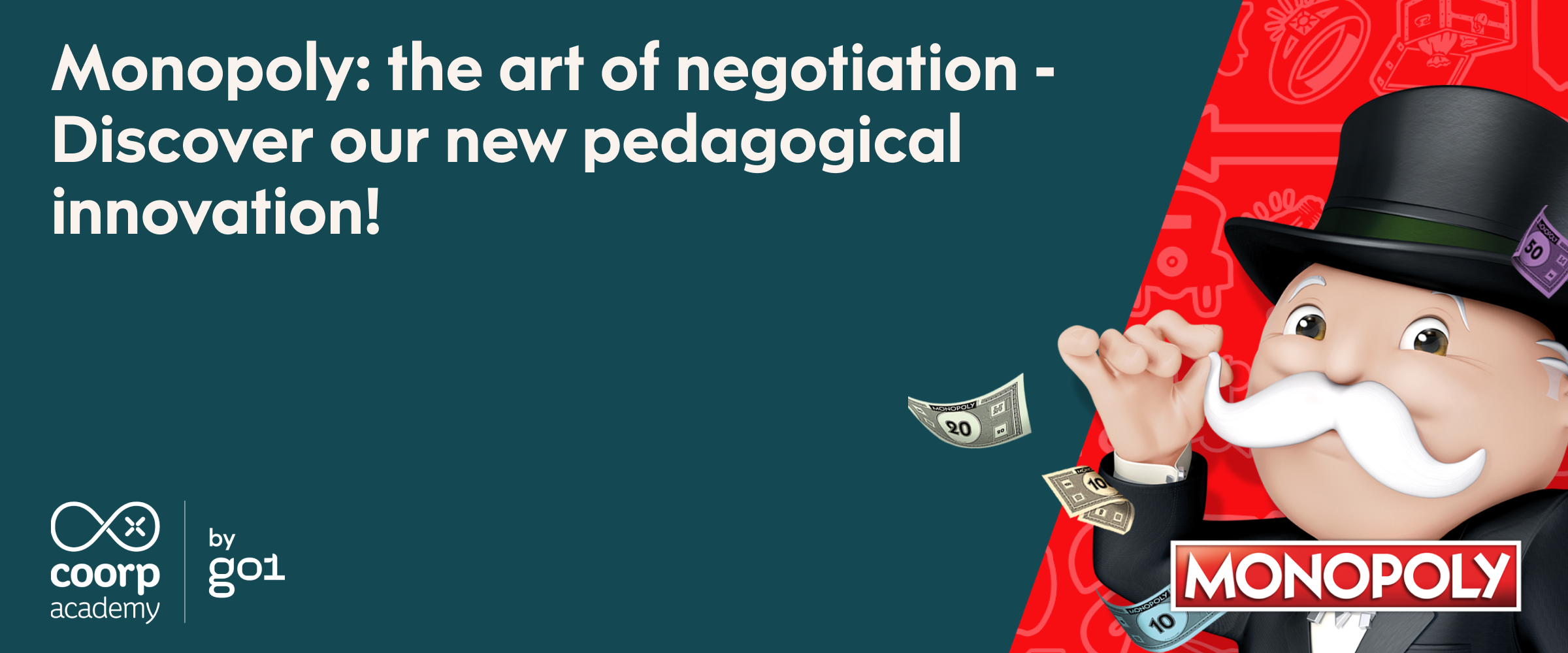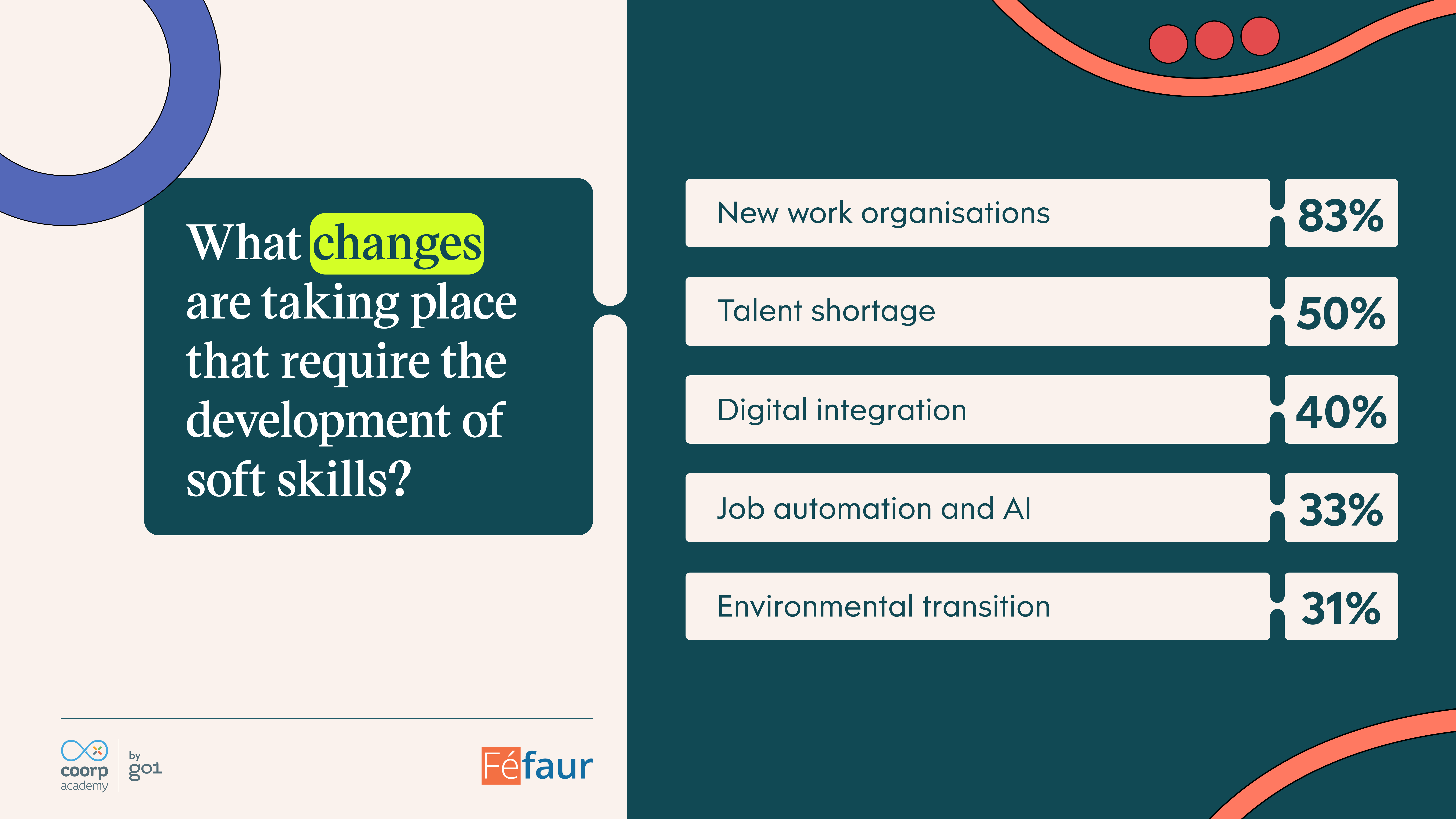Eco-anxiety: how the climate crisis can already impact your business
Learning Innovation

In 2020, environmental degradation is said to have become the fourth most important concern of the French. Today more than ever, this feeling of concern is intensifying, stemming from the current environmental, political and social upheavals. While it is now impossible to ignore the climate crisis, it is no less legitimate to feel anxiety about the degradation of our environment, which is constantly threatened by human activity.
The IPCC recently published its synthesis of over 34,000 scientific papers on climate change. This sixth report, published on 1 March 2022, addresses the effects of climate change on human societies and ecosystems. It reveals that around one billion people will be threatened by coastal climate hazards in the medium term, under all scenarios. This report is the latest warning of a “dire” future, the beginnings of which are already impacting your business, starting with the heart of your business: People.
Eco-anxiety: a concerned mind in a VUCA world
Eco-anxiety is a concept that has not yet been defined in France. Indeed, there is no consensus, especially from a medical point of view, on what this term initially appeared abroad covers. According to the existing definitions, eco-anxiety always combines two characteristics: a feeling of concern, worry, anxiety and anguish felt by certain individuals and which is provoked by current upheavals or by threats to the environment, linked in particular to climate change.
According to an online survey by Charline Schmerber, a psychotherapy practitioner, of 1,200 people (not representative of the French population as a whole), 90% of respondents say that environmental degradation creates a feeling of anxiety in them. This anxiety is not only related to the environment or climate change. It is an anxiety described as “systemic”, also linked to wars, violence, economic or health risks and therefore the risk of a “collapse” of society as we know it. The survey also reveals that 80% of respondents feel that environmental problems have reduced their confidence in the future.
Climate change may not yet have a direct and visible impact on your company, but it does have a direct impact on the people who make it happen. If employees suffer from a sense of anxiety and concern about the world, they can quickly lose their motivation and commitment to their work. Many will want to question their place in society and the meaning of their job, and if managers do not quickly become aware of these issues and support them, the employees concerned can quickly become disengaged on a daily basis.
In search of lost meaning
According to an IFOP survey for Philonomist, 82% of French employees believe that the company is responsible for their happiness. However, 49% say they are sometimes led to act against their values and 37% would be willing to earn less in exchange for meaningful work. The expectations of French employees are evolving and thus, taking into account the values and the impact of a company on society is now a crucial factor of commitment. Today’s workforce makes it a point to be accountable for the impact of their actions. Employees want to be able to discuss the purpose of their actions, not just execute them.
A study conducted by the OpinionWay polling institute on behalf of Factorial also shows that the relationship between the French working population and work is being profoundly questioned. Thus, 33% of French people said they had lost all meaning in their professional activity since the beginning of the crisis. Many of them consider that work is not a source of pleasure or interest, but rather that it is above all a food necessity (68%) and that if it were financially possible, they would stop working altogether (62%).
Thus, it is crucial for companies to take into account these new expectations and to transform themselves to meet the aspirations of their employees. The company and the people within it are interdependent and cannot exist without each other. If employees do not find this lost meaning, then disengagement will increase and companies will have no choice but to reinvent themselves. Why wait for this point of no return, when it is possible to initiate change today?
Shuffle or lose the game
As mentioned in the introduction to this article, the sixth IPCC report is alarming. Indeed, according to the experts, there is still a chance to improve the situation, which is getting smaller every year. Carbon neutrality should be achieved and action taken immediately.
Companies therefore have all the cards in their hands to initiate – or accelerate – their ecological transition, and they have every reason to do so. Both to preserve the environment and to ensure their sustainability. Indeed, companies will not be able to survive in the world described by the IPCC report if efforts are not made. If they don’t do it for themselves, they will at least have to do it to ensure the productivity of their teams, to preserve their talents and to engage their employees. With training, we want to change the rules of the game, to sustainably transform the company and thus play longer.
In conclusion, the process of raising awareness about the state of the planet is underway. However, this process must be encouraged and initiated by companies. To transform the company, large-scale training is essential. It allows for massive training of employees on the crucial subjects of sustainable development, and to raise awareness of the consequences that our human activities can have on ecosystems. Learning is first and foremost understanding, which allows us to act.
To go further, discover Coorpecology, the online training platform dedicated to sustainable transformation👉 https://www.coorpacademy.com/formation-en-ligne/coorpecology/


